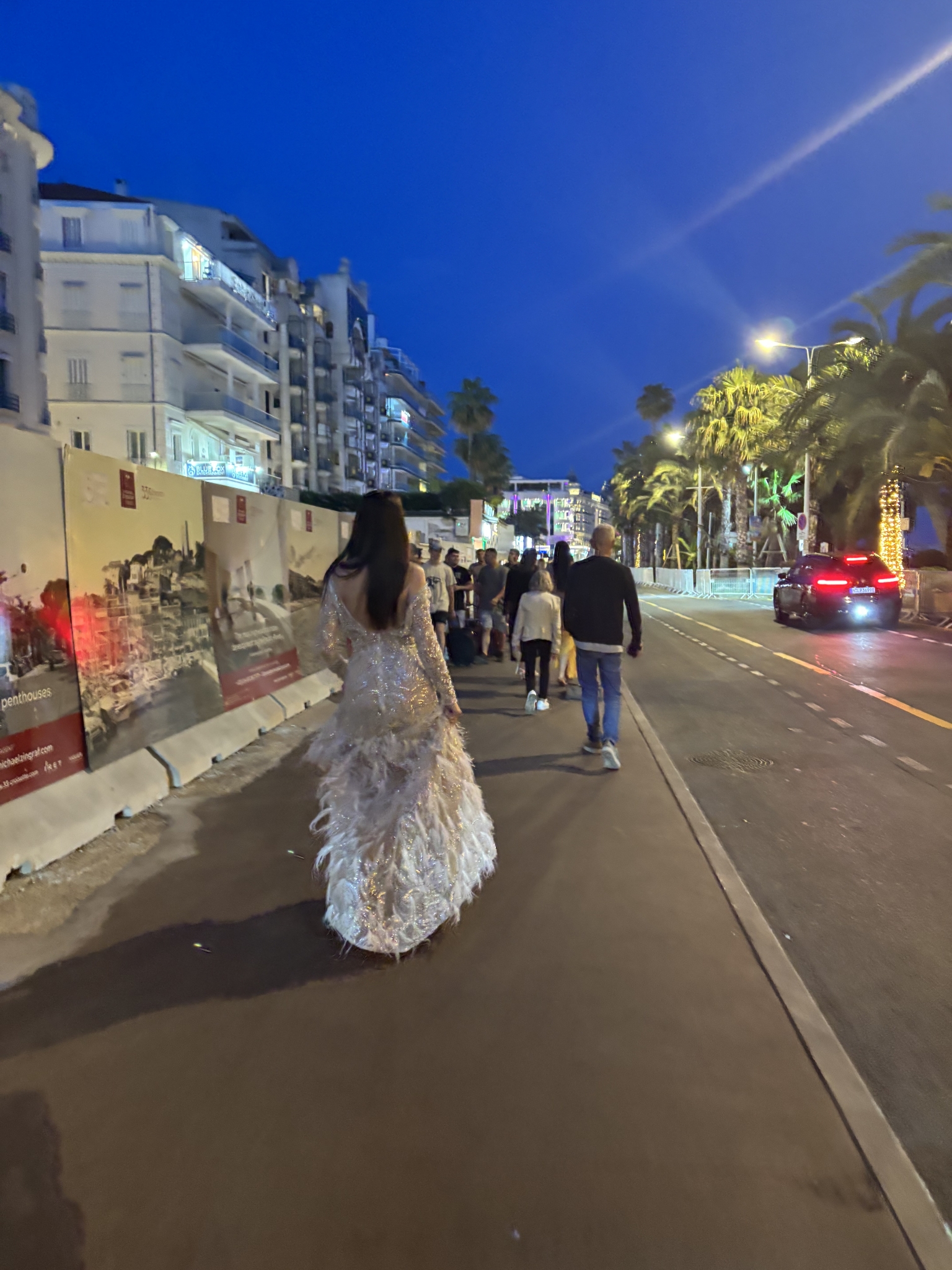
“A palm tree has fallen down and a man’s head is bleeding. A throng of people gather round to morbidly admire the scene.” Kitty Grady pens her second dispatch from the world’s most famous film festival. Read part I here.
Saturday 17th May
There’s a sinister air on the Croisette today. A palm tree has fallen down and a man’s head is bleeding. A throng of people gather round to morbidly admire the scene. Someone is shouting at people who are taking photos—saying that they have no respect. Reported in The Guardian, the man is revealed to be a Japanese film producer. It reminds me of our Cannes Issue 8 cover from last year. Nadia Lee Cohen recreated an image by the Mexican documentary photographer Enrique Metinendes of a glamorous journalist who was crushed between a car and a telephone poll. Glamour and death. Just before, a seagull had stolen the Pan Bagnat I bought from Kiosk 4 right out of my hands. Onlookers laughed and I shrugged my shoulders comically. On the train back later that day an announcement is made by the captain. A group of pickpockets has got onto the train at Golfe-Juan. Before we came to Cannes, our Editor-in-Chief Charles Finch challenged us to find a crime story here, and it feels like I am getting close.
Whilst some of the team head to Jean Pigozzi’s magnificent house in the hills, today I have one film scheduled—Kristen Stewart’s The Chronology of Water which premiered the day before. Stewart is one of three actors-turned-directors in this year’s Un Certain Regard category, alongside Harris Dickinson and Scarlett Johansson (more on both below). It’s an oneiric, surprisingly experimental offering from Stewart, following a woman who, sexually and psychologically abused by her father as a child, deals with addiction, turbulent relationships and ultimately finds redemption in the form of writing. Imogen Poots, her lead, is magnetic and unruly.
Dickinson’s Urchin premièred that morning, and his party is that evening, held at a villa in the hills above Cannes. It is the invite of the Cannes season, with rumours of huge A-listers attending—many of whom do show up. There is a hugely celebratory atmosphere, with Dickinson’s film and Dillane’s performance having been received exceedingly well. On the dancefloor, ‘Whole Again’ by Atomic Kitten, a particularly great needledrop in Urchin, is resoundingly played. Charli XCX joins Rose Gray (Harris Dickinson’s partner, who is DJing) at the decks for a few songs. An Irish actor asks me for a cigarette. There are rumours someone fell in the pool. All above board. No crime story to be found here.
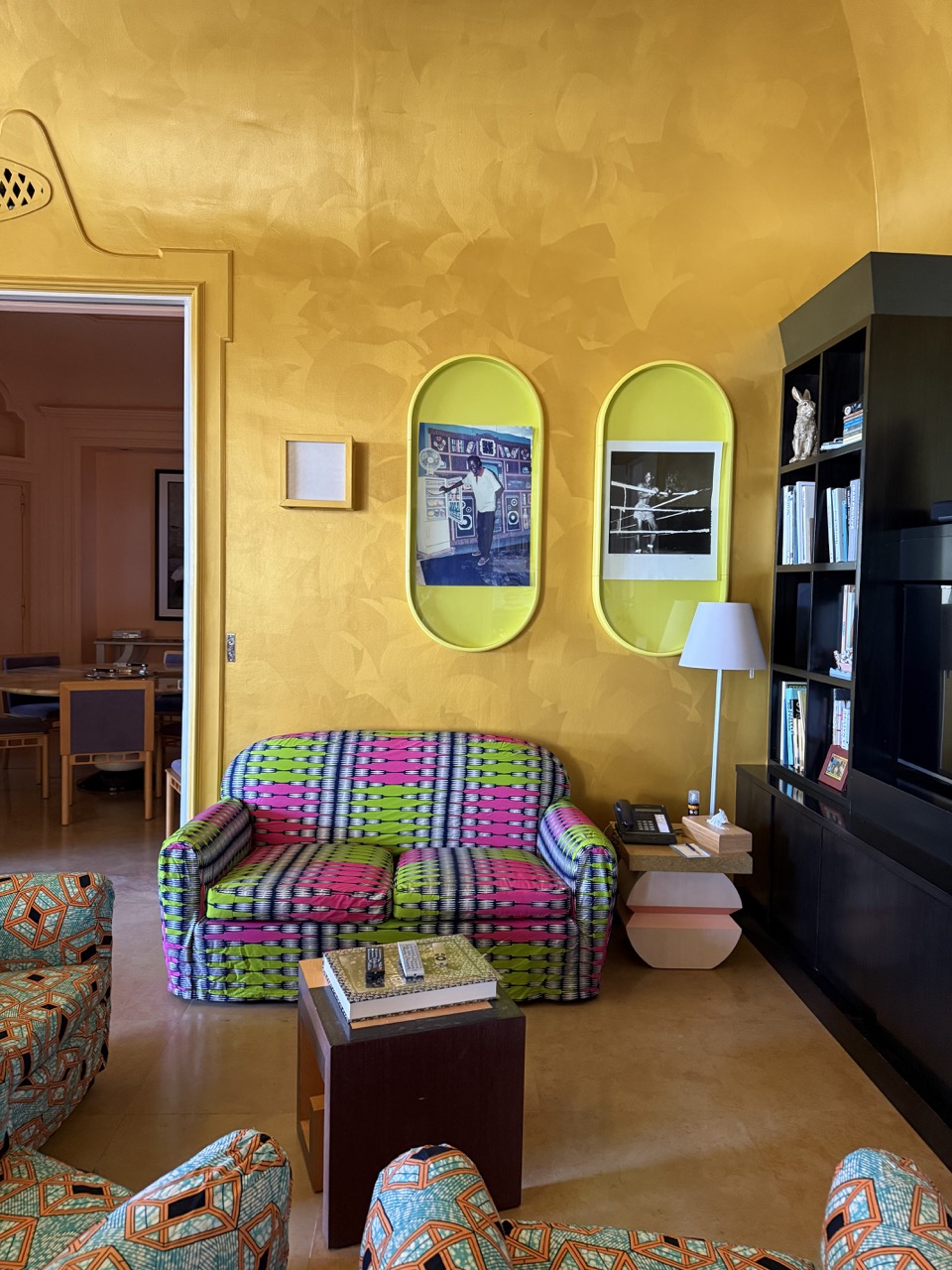
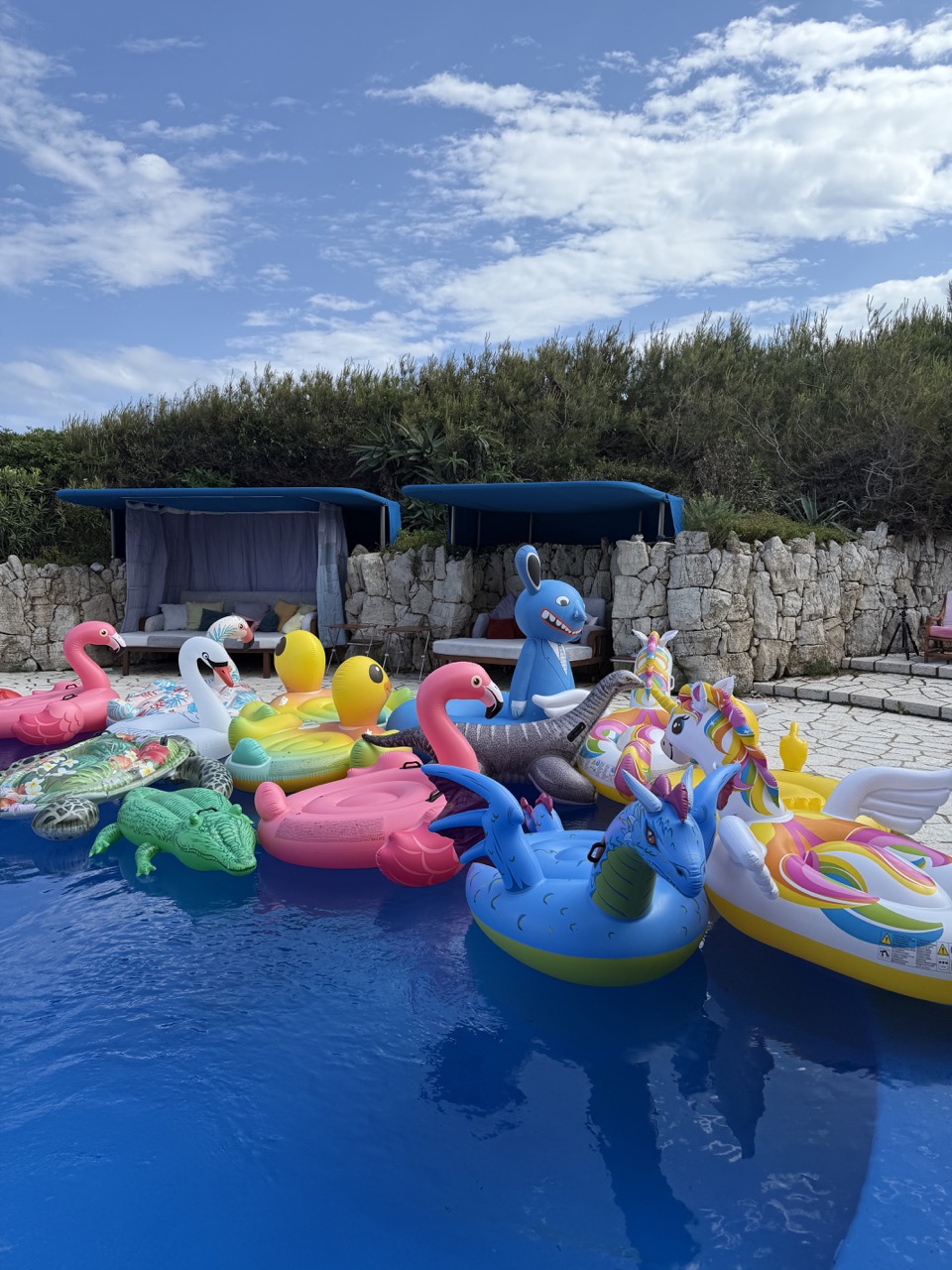
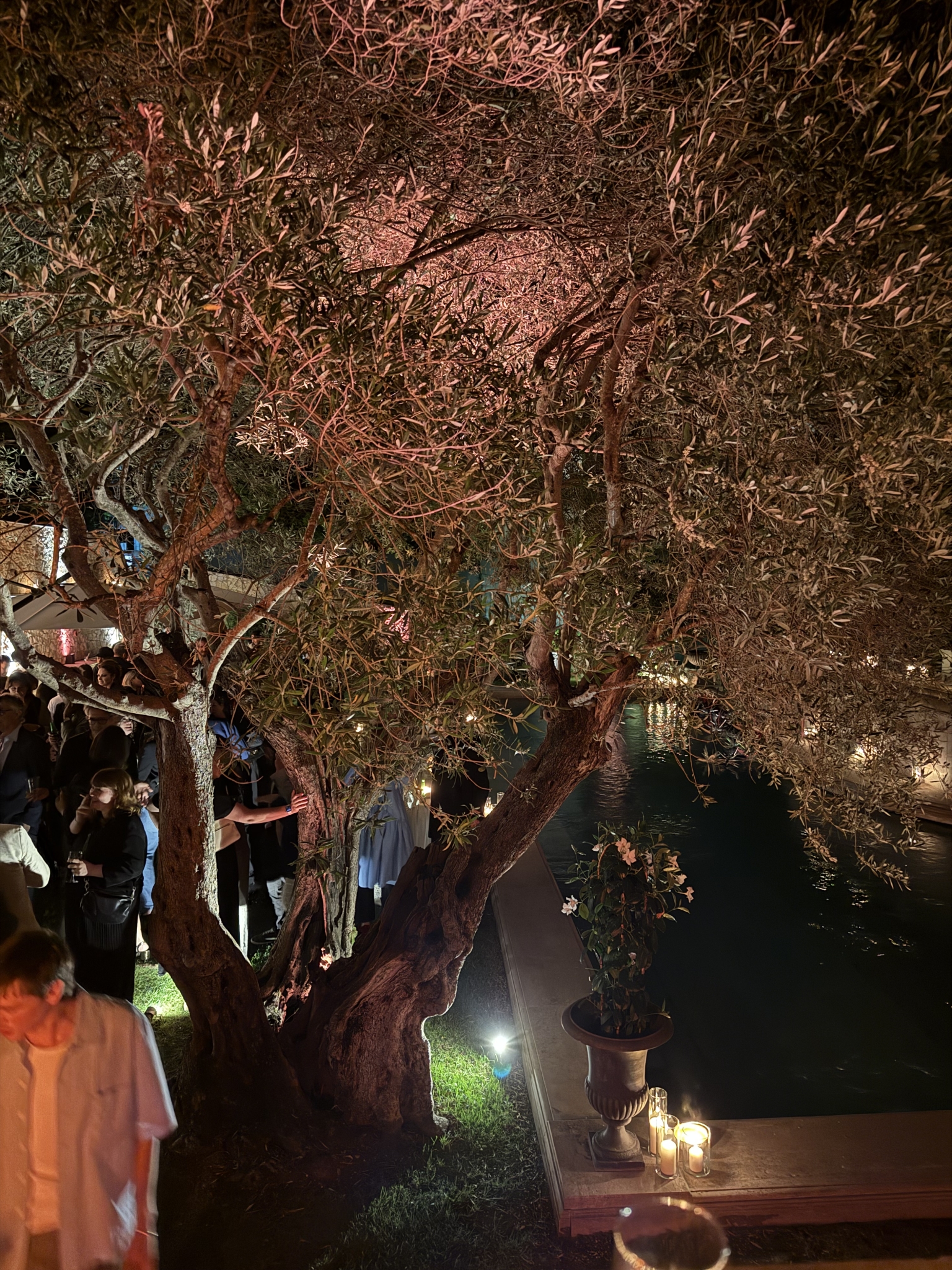
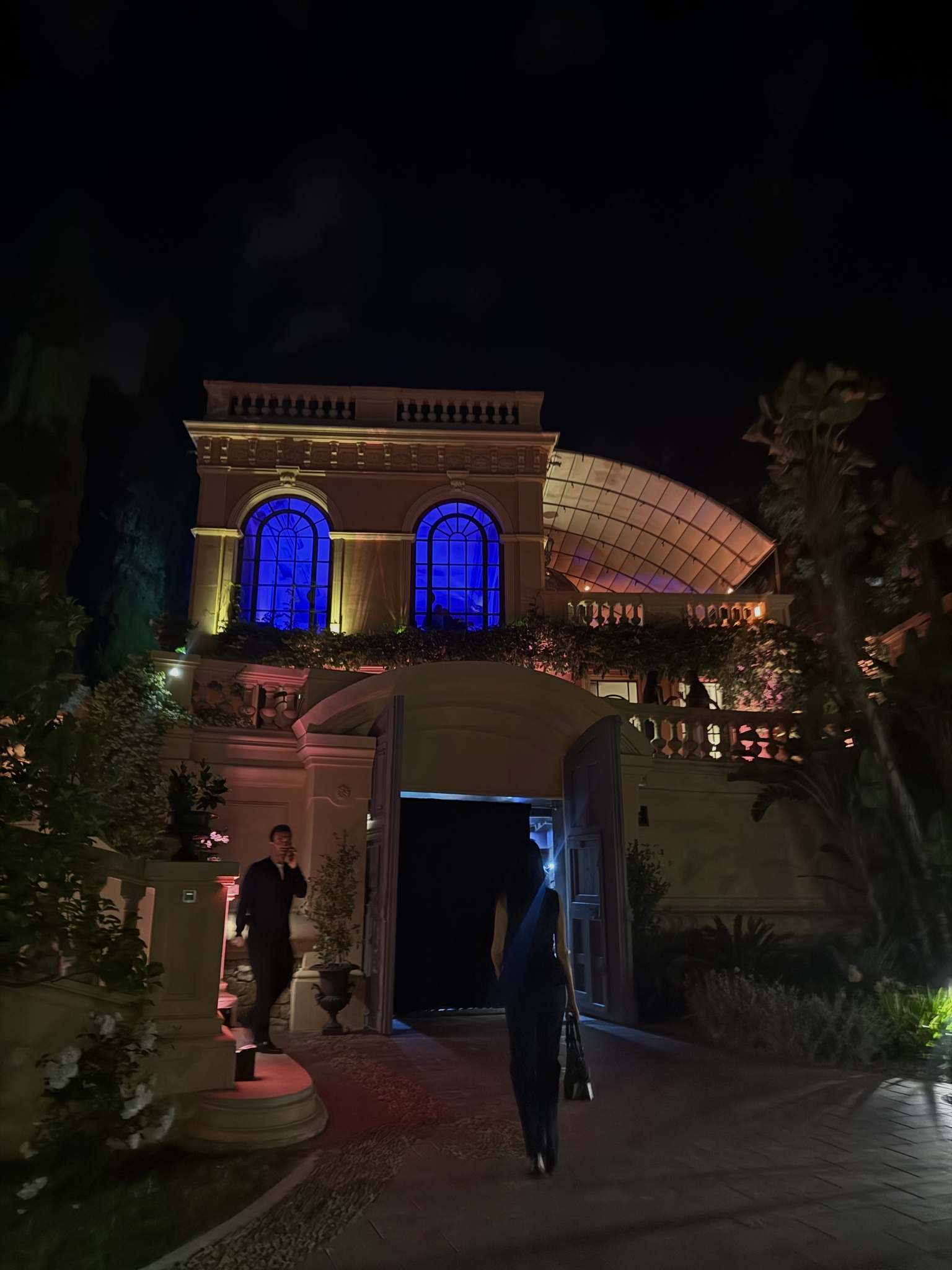
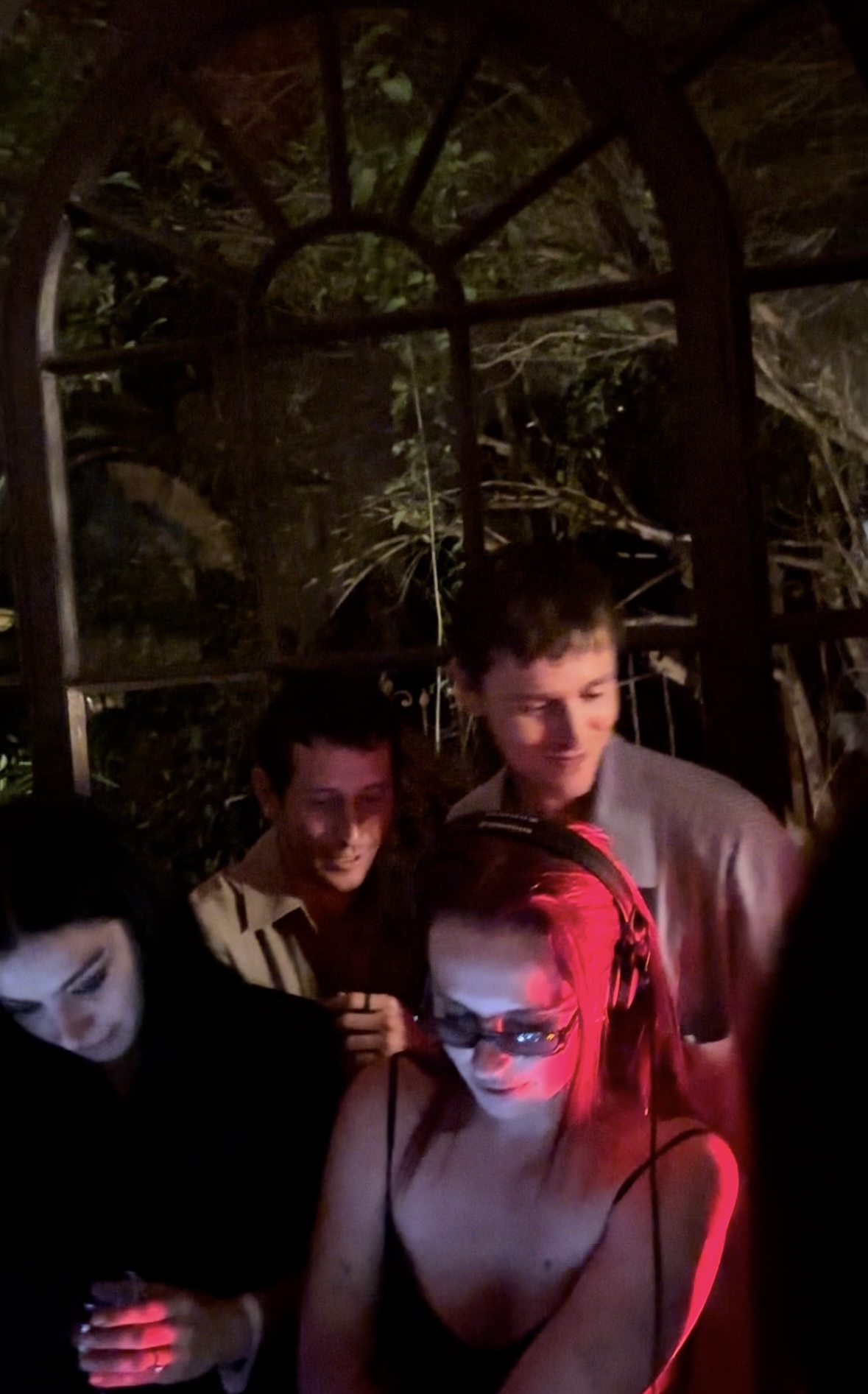
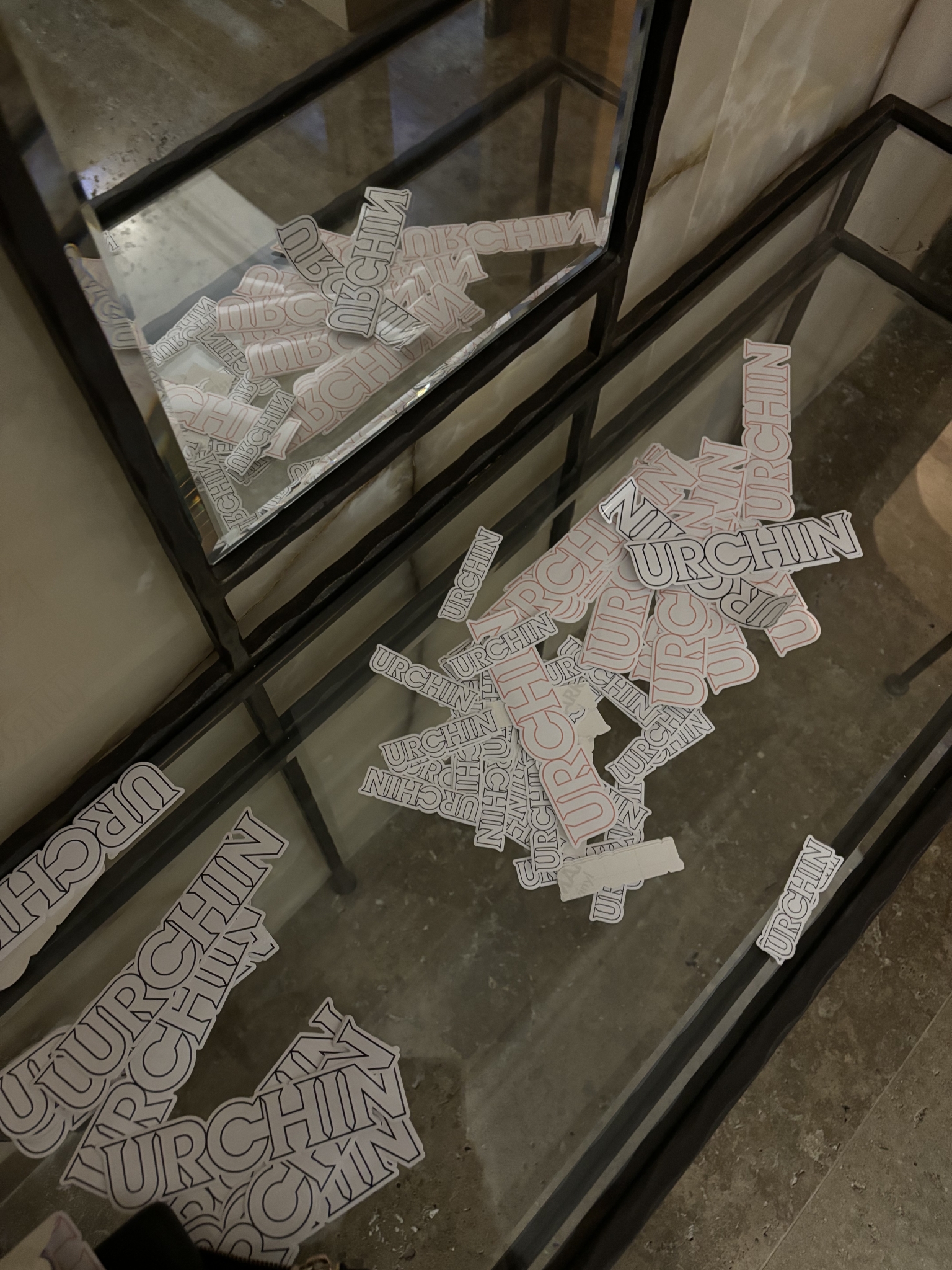
Sunday 18th May
I wake up late. I’ve overslept and missed not one, but two films. Cannes ticketing rules can be strict, if you miss too many screenings you can be blocked from the ticket system. The films in question are Die My Love and Nouvelle Vague. The first is the latest offering from Lynne Ramsay (Morvern Callar is one of my ‘four faves’), and stars Jennifer Lawrence and Robert Pattinson as a married couple navigating postpartum depression (review here). I hear it is filled with good needle drops and I feel severe FOMO for missing it. Richard Linklater’s Nouvelle Vague (review here) is a very ‘Cannes’ film about the making of Jean-Luc Godard’s Breathless. A critic who Chris and I bump into says he’s sure it will be France’s entry to the Oscars (the American director produced the film in France, using CGI to recreate the vintage film).
Issy Carr (of Rabbit’s Foot Films) and I decide to try and catch a later screening of Die My Love at the Agnès Varda theatre to no success. But there is a silver lining. We see My Father’s Shadow (Akinola Davies Jr) at Debussy, a meandering film about two brothers who follow their father around Lagos for the day. Issy and I then wander around. A veteran, she shows me the ‘best loo in Cannes’, which are inside The Mondrian. They are pretty good, and we have a slapstick laugh with an Italian film producer based around the force of the Dyson hand dryers. In the evening, without tickets, we head towards Cinéma de Plage, a Cannes cinema that is open to the public. We perch on the wall by the beach and watch the opening moments of Nanni Morretti’s Palombella Rossa (1989), before heading towards Le Petit Majestic. Le Petit Majestic, not to be confused with Le Majestic—one of Cannes more supreme hotels—is a hotspot where journalists and industry people spill out onto the street with plastic cups of beer. We bump into The Guardian critic and A Rabbit’s Foot contributor Peter Bradshaw, who tells me his predictions, highlights and lowlights of the festival, enjoy a few drinks and whizz back home to Juan Les Pins, through the tender night.
Monday 19th May
My morale feels low today. Second day hangover mixed with Monday morning blues. The first weekend of Cannes is known as the party weekend. The second week the festival gets quieter, and is more about getting down to business with the actual movies. Apart from maybe Sirât (still the highest rated, when I write this on Tuesday morning, in the daily Cannes leaderboards), there’s no clear contender for the Palme D’Or, so there’s still a lot to play for.
I start the day with a film playing out of competition. Thierry Kilfa’s The Richest Woman in the World. Although it comes with a disclaimer that similarities to people living are purely accidental, it loosely tells the story of the relationship between Liliane Bettencourt, the L’Oréal heiress, and François-Marie Banier, a bombastically virile celebrity photographer to whom she gives about €1 billion of her fortune (their relationship pushes the boundaries of the platonic, and Bettencourt’s family hate Banier). Isabelle Huppert excels (as always) in this film which is filled with aphorisms. “Is there anything as sinister as good taste?” was one such line.
After some melancholy wandering around in the heat and another blow when I fail to get a last minute ticket for Harry Lighton’s Pillion, a film in Un Certain Regard with a lot of buzz around it. Things look up when I head into The Love That Remains, directed by Hlynur Pálmason, at the Agnès Varda theatre. With its lapping rhythms and lightly humorous tone, I drift off to sleep for a good twenty minutes, feeling restored on the other side.
Having worn shoes that hurt me all day (leather flip flops), I go home and come back out for one of my most anticipated of the festival, Julia Ducournau’s Alpha—it is devastating and bleak, and at the time of writing certain parts of it are still crawling through me. Providing some comfort, I am joined by film critic Christina Newland, who is glammed up, having just come from Spike Lee’s Highest 2 Lowest première. A$AP Rocky and Rihanna are in town, as is Denzel Washington. Later, the Roger Ebert critic Robert Daniels, who Christina and I bump into, tells us that Denzel Washington, who is currently starring as Othello in New York, flew into Cannes in the morning, and after receiving a special honour at the premiere, left immediately as the screening ended. He is literally in the sky as we are talking. We end up again at Le Petit Majestic, where amongst others I meet Robbie Ryans, the legendary Irish cinematographer, who tells me how much he loved The Love That Remains, too.

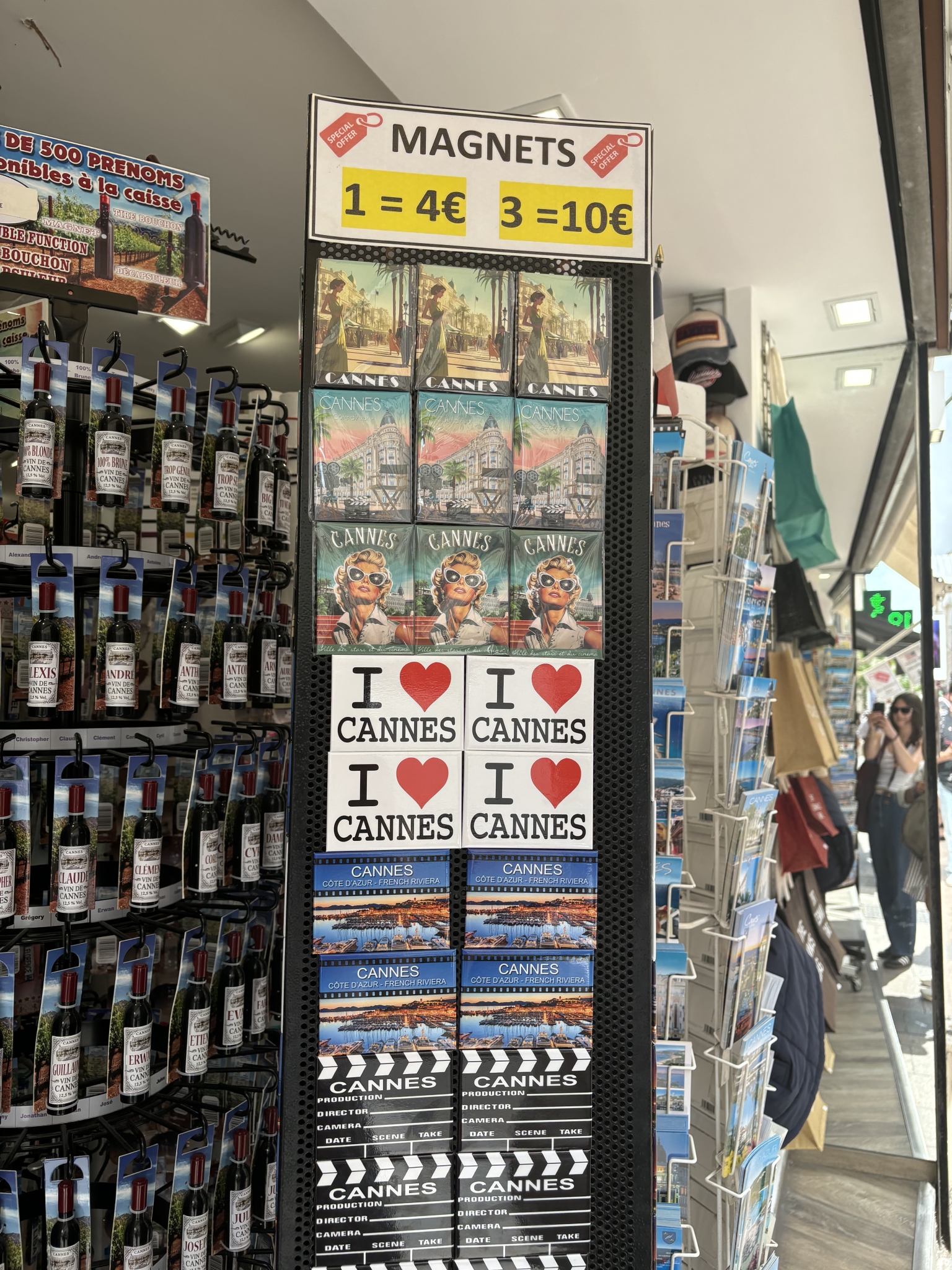

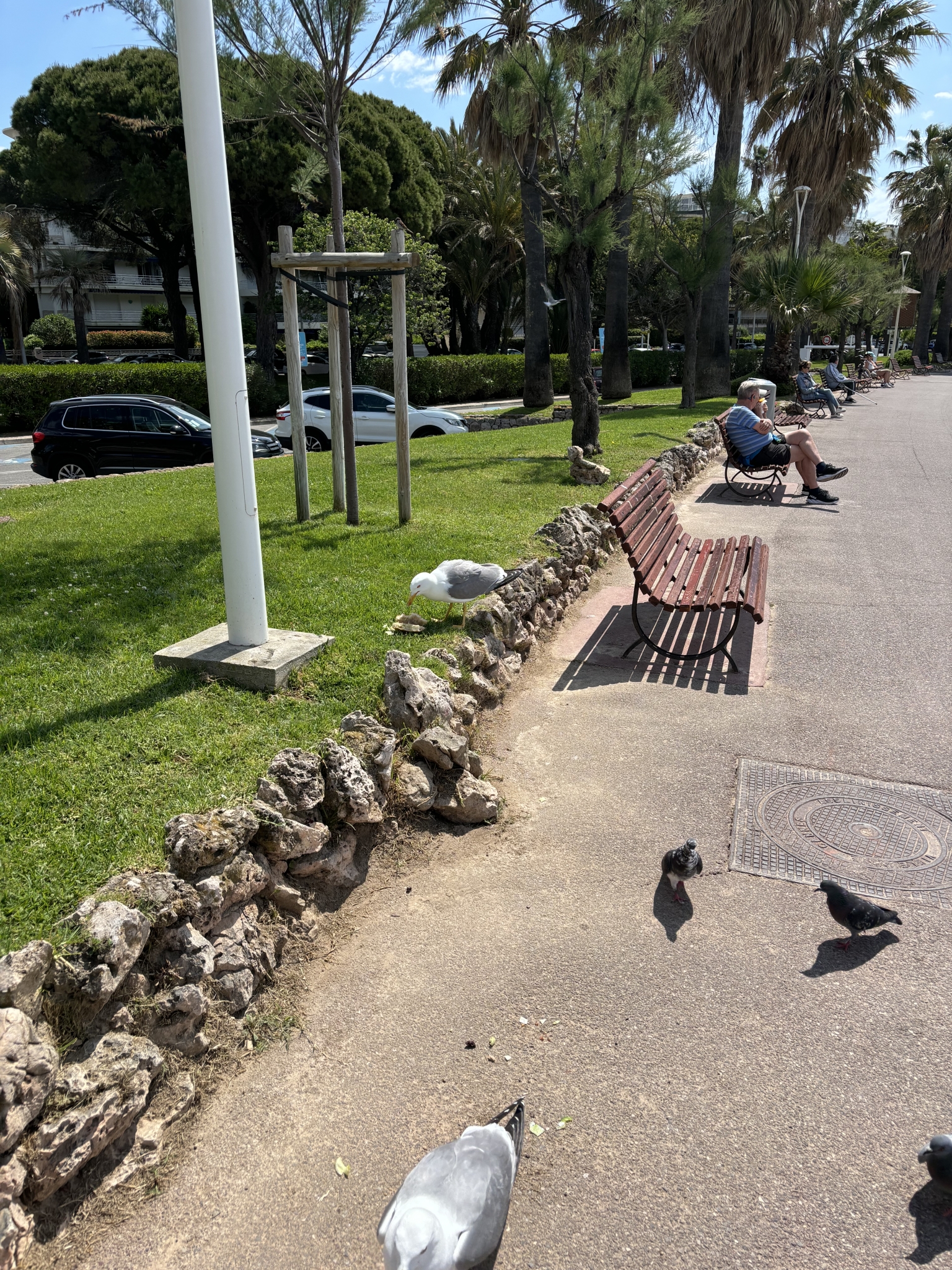
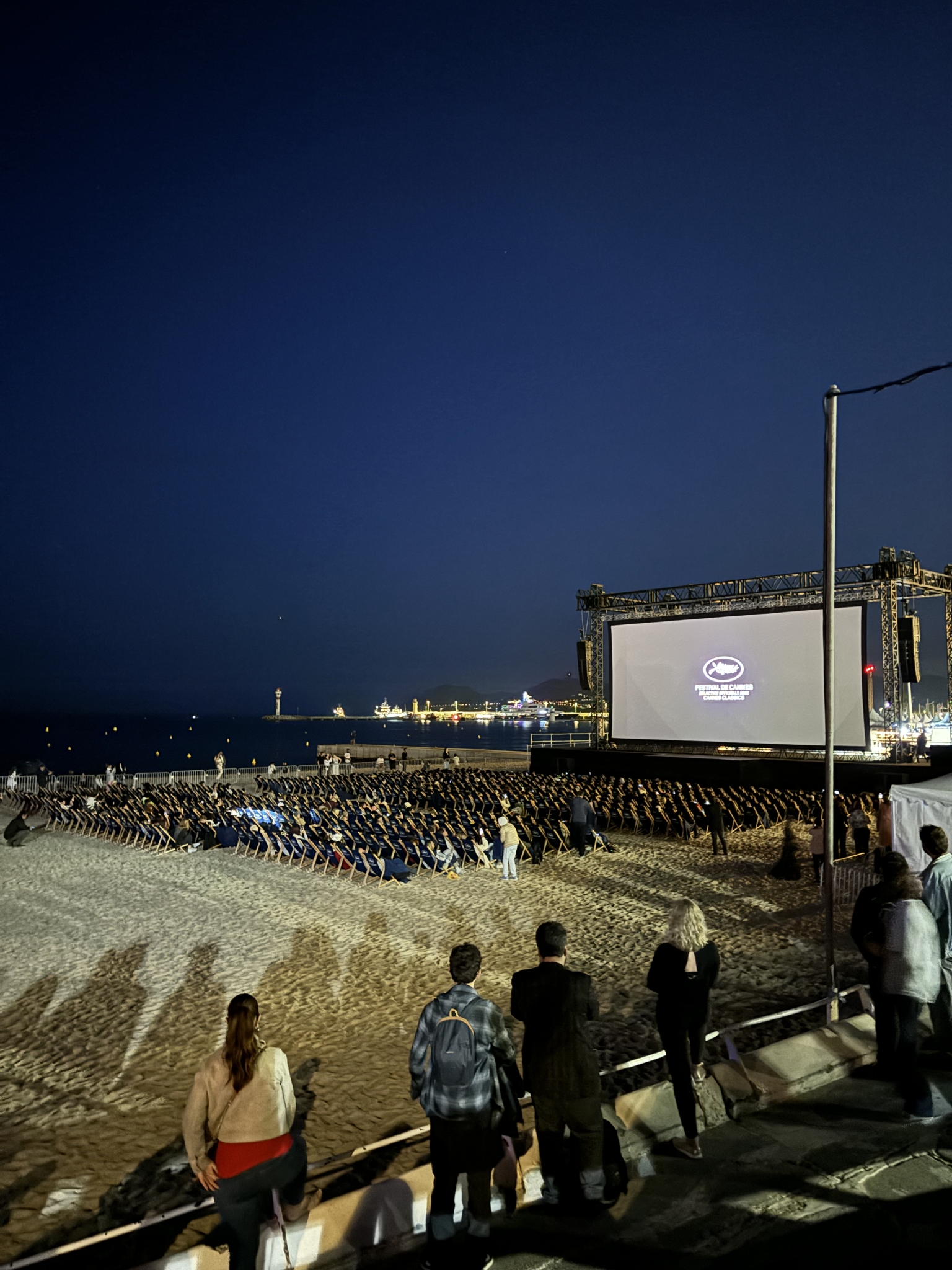
Tuesday 20th May
After the failures of Sunday, Tuesday is the day for cinema. I start at a bleary-eyed 9.15 screening. It’s raining and my Uber driver tells, zooming along the coast, that I must feel at home. I have managed to get a ticket for Pillion at Cinema. A ‘pillion’ is someone who sits in the passenger seat of a motorbike, and the film is an adaption of Adam Mars-Jones’ book Box Hill, about a sub-dom relationship between a biker (Alexander Skarsgard) and a twink (Harry Melling). It’s a trend of late for— particularly male—actors to turn up on the red carpet in character and Skarsgard—for whom it feels like the word strapping was invented—was pictured in thigh-high boots on the red carpet the day before.
As I leave, it’s still raining and I get the somewhat depressing shuttle (whenever you hear the word shuttle, you know you’re in trouble) back into town, having a croque monsieur for the second day in a row at Café Poet (one of the nicest, inexpensive cafes in Cannes). It’s then time for Eleanor the Great, the directorial debut from Scarlett Johansson. As a real A-lister, there’s a huge buzz in the air, with people leaning over the balcony to see her and other celebrities in the audience. (Adrien Brody, who Thierry Fremaux, the festival’s director, greets in his introduction). The film, highly sentimental and somewhat cloying, tells the story of a nonogenarian (June Squibb, 95, last in Cannes for Alexander Payne’s 2013 Nebraska) who, borrowing the story of her recently deceased best friend, pretends to be a holocaust survivor. Chaos ensues when she befriends a young journalist who wants to tell her story. Maybe it’s because I’m tired, maybe it’s because it’s Cannes, but I am literally in bits by the end, tear stains on my notebook. It’s a reminder that whatever pretentions you might have about cinema, when it hits, it hits.
I make a quick stop for a pain au chocolat, inelegantly consumed on the asphalt. The emotional devastation continues with Love Me Tender. Anna Cazenave Cambet’s adaptation of Constance Debré’s auto-fiction of the same name, starring Vicky Krieps as a woman whose husband denies her access to her son after she comes out as a lesbian. The scenes between Krieps and her son in particular I find utterly devastating. I am crying so much my MAC tinted moisturizer has completely cleansed off by the time I leave Debussy. But at least the sun is out again.
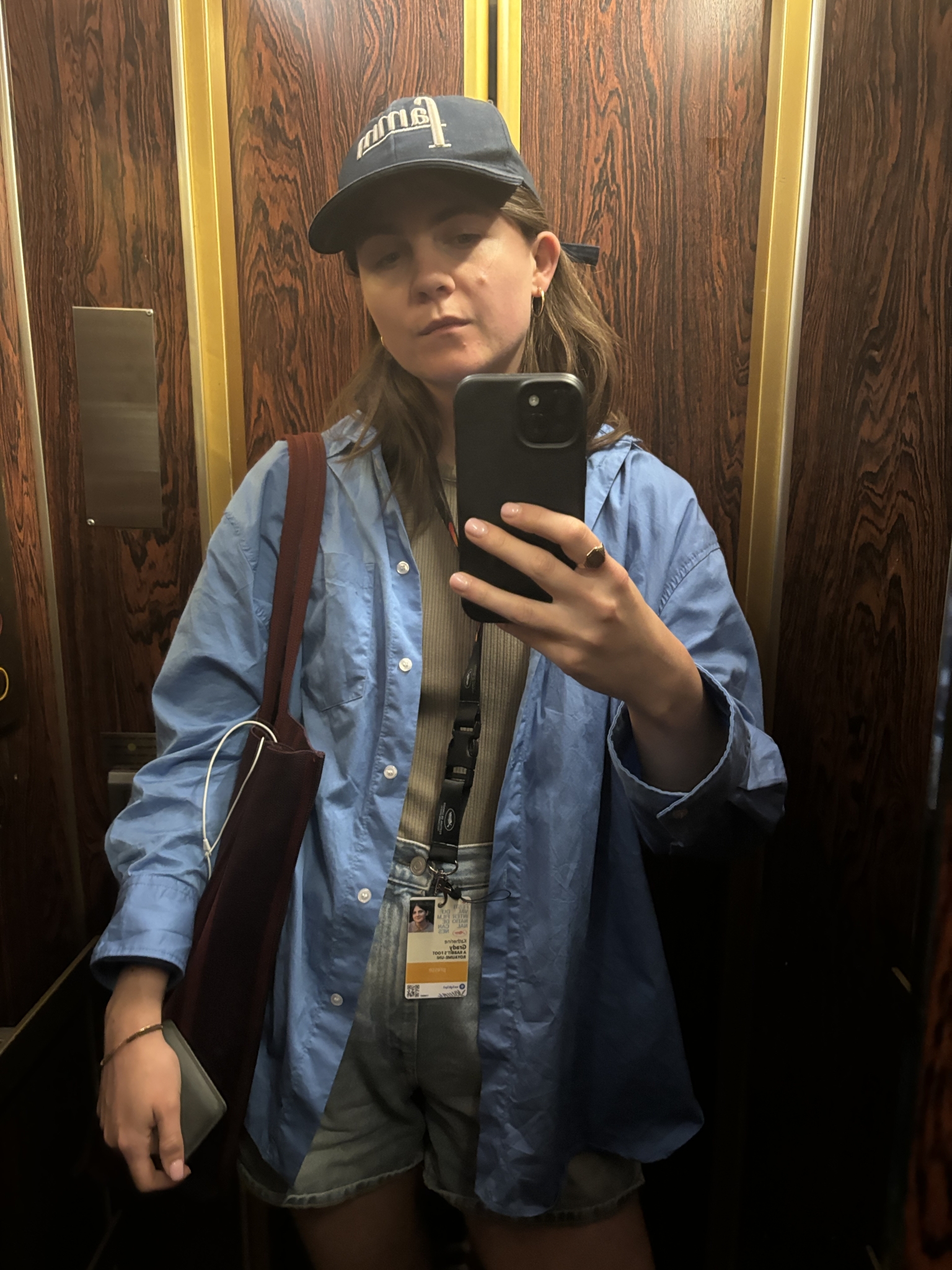
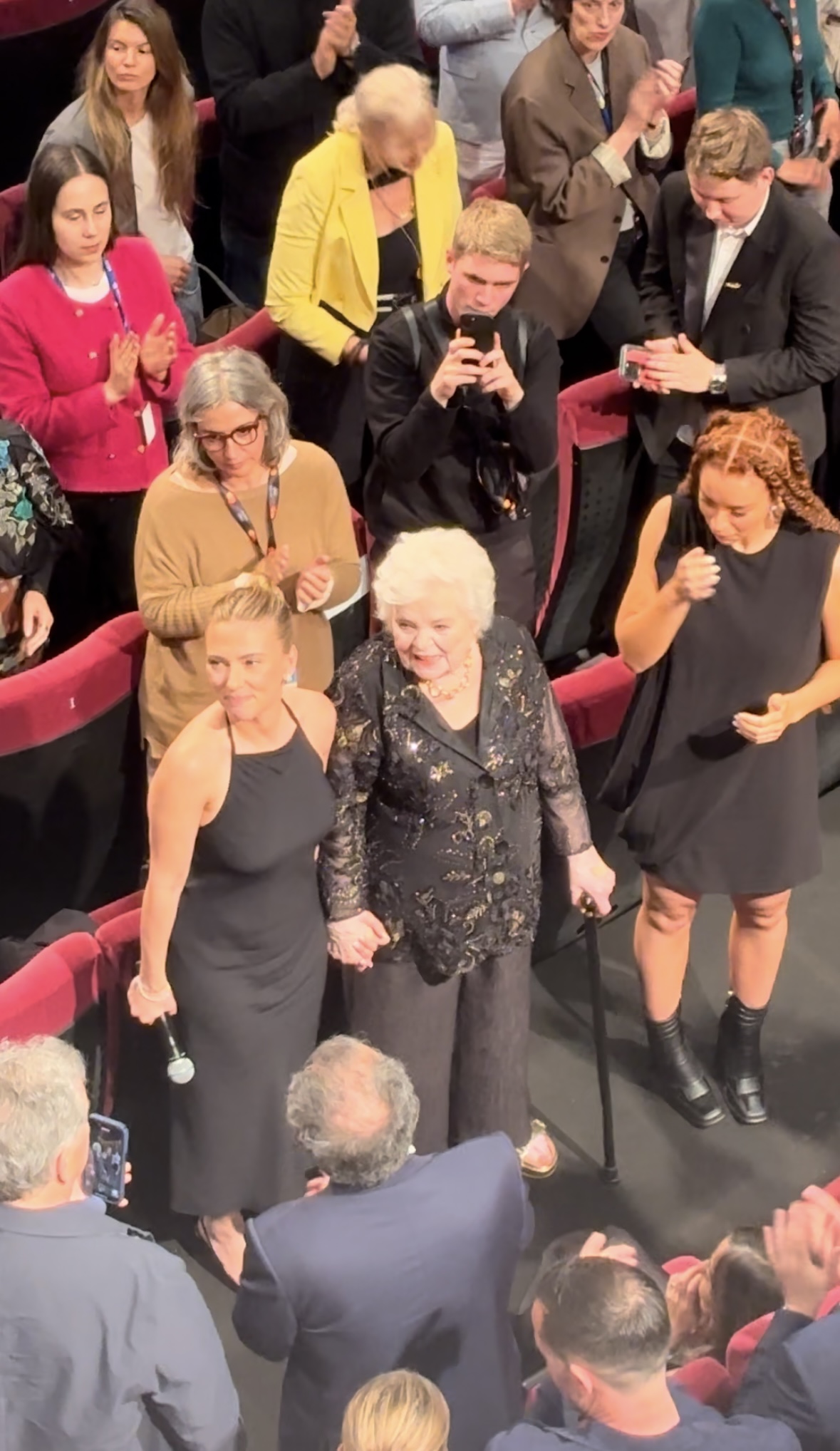
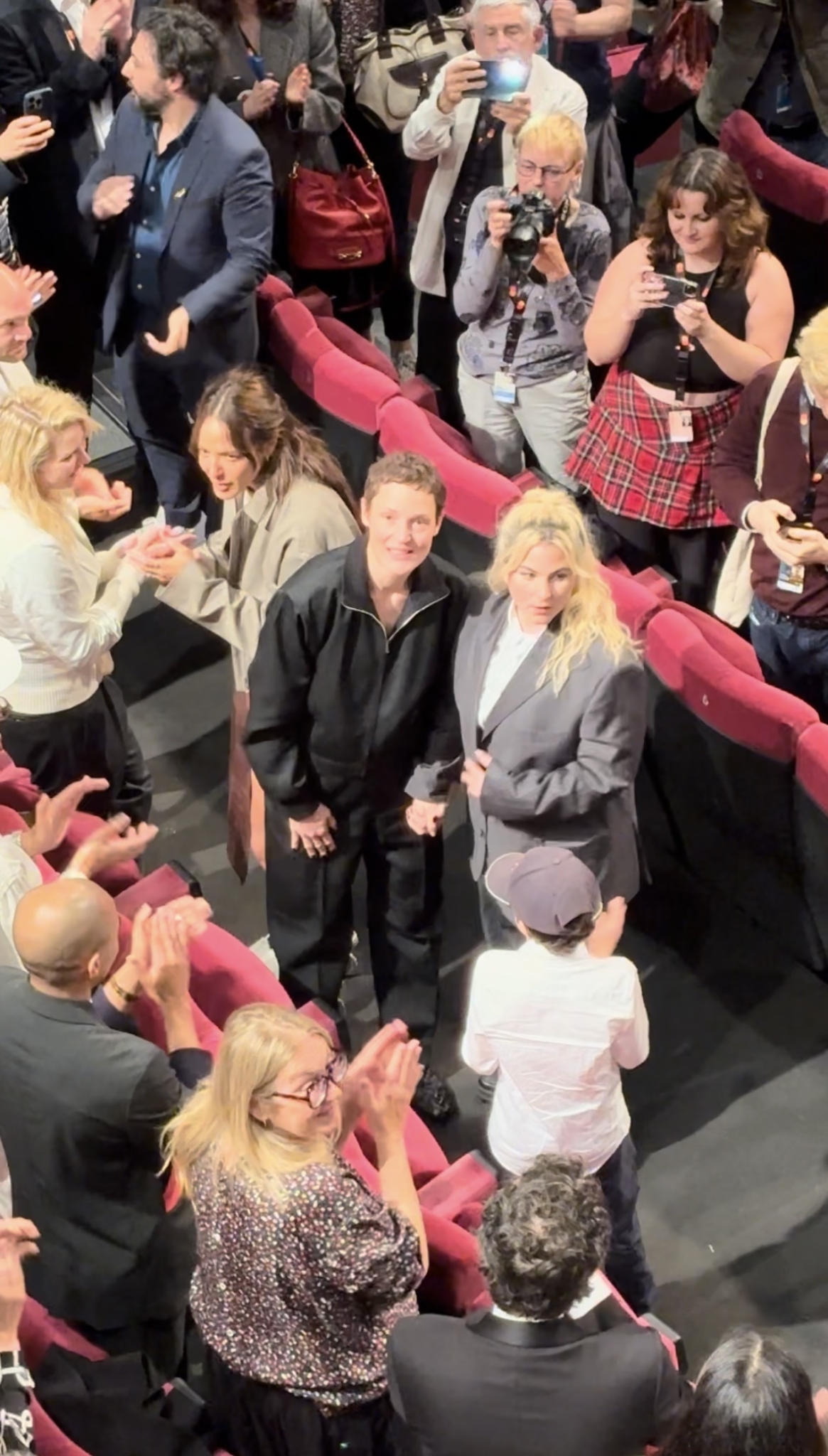
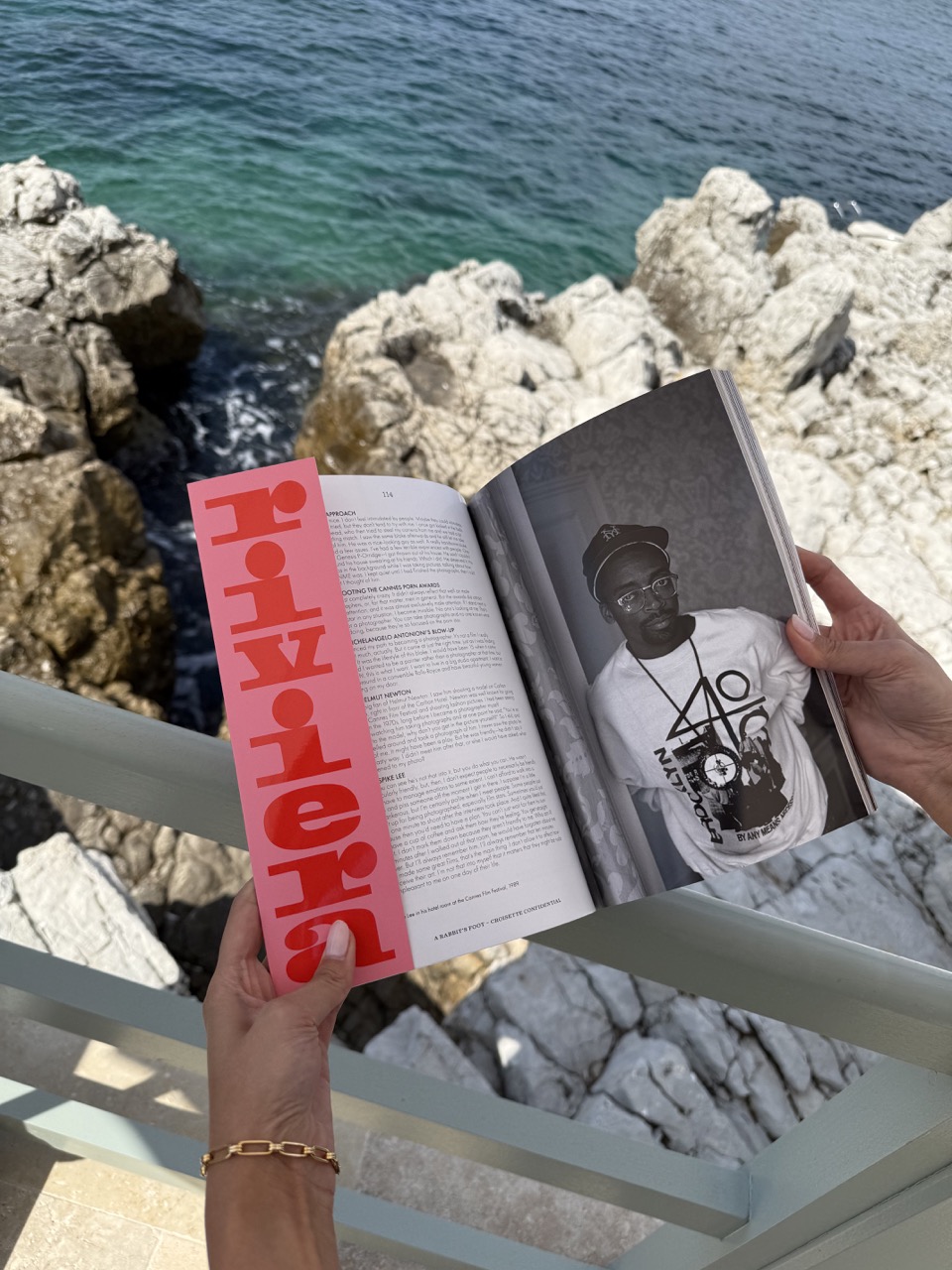

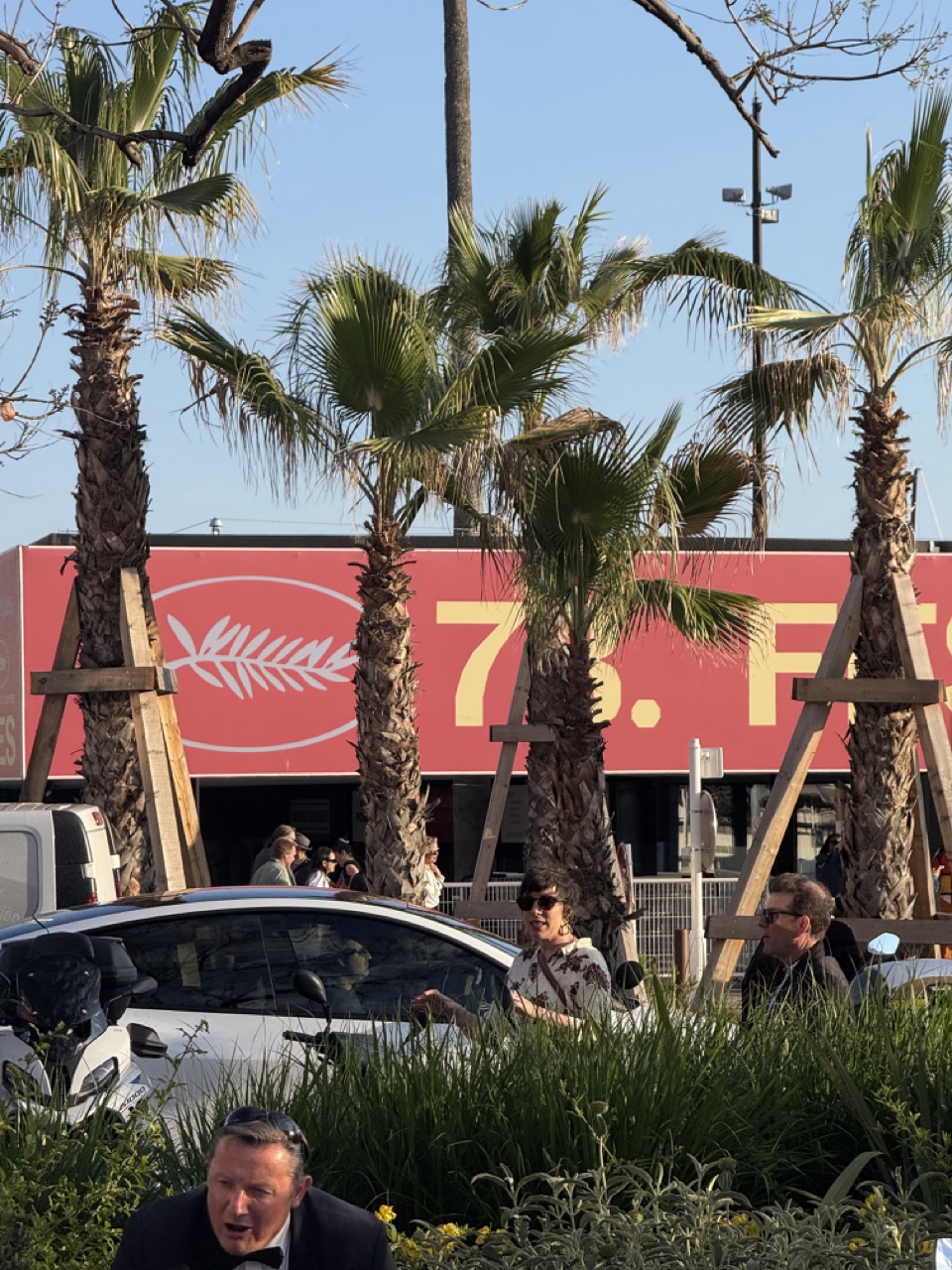
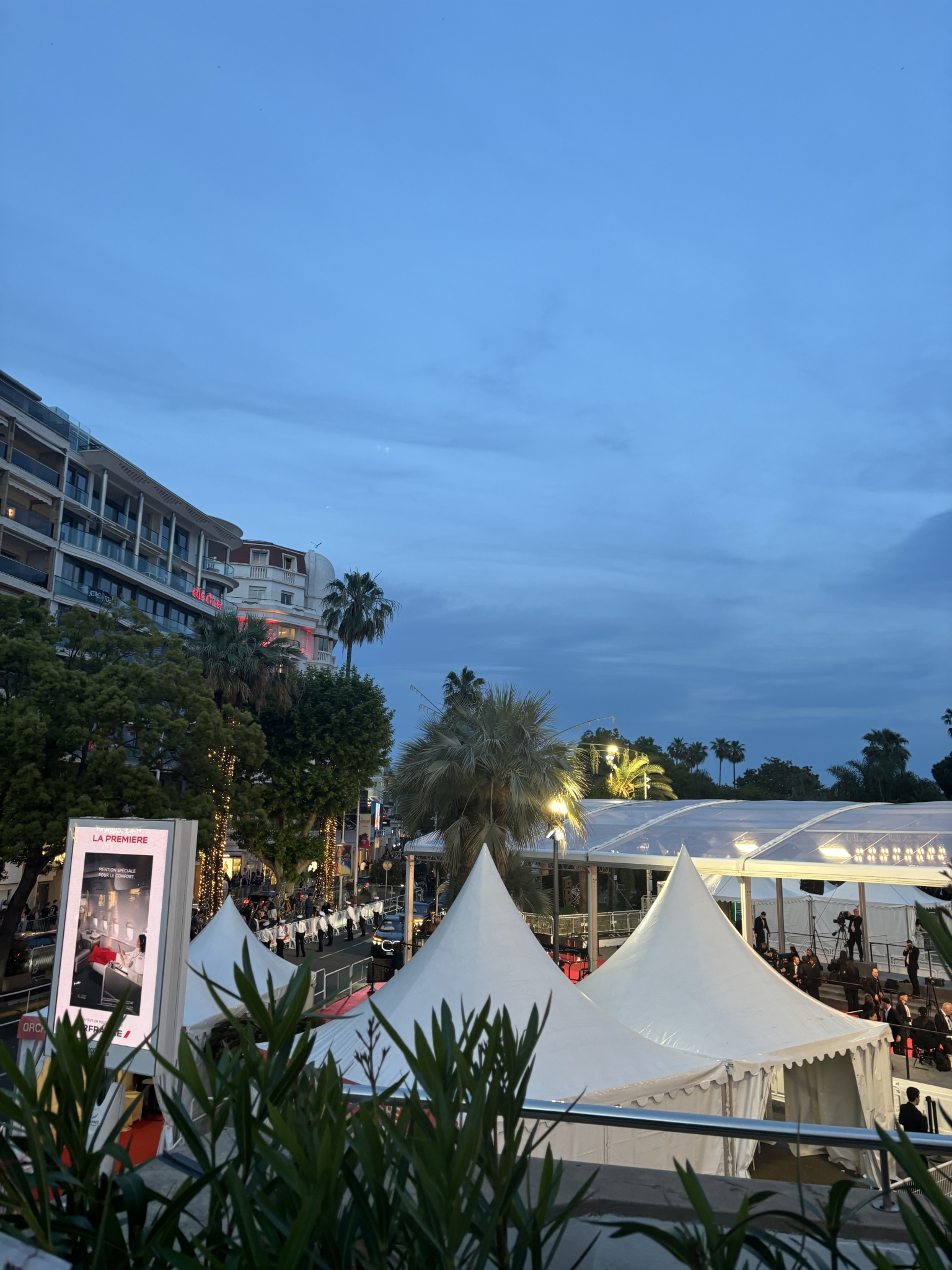
Wednesday 21st May
Last full day in Cannes. The sun is out. We are leaving our AirBnB in Juan les Pins and I am couchsurfing for a night in Antibes. I work in the morning, before meeting the wonderful journalist and film critic Sophie Monks Kaufman, who tells me this is her 10th Cannes and wears a rather chic red festival back pack from a few years ago. I find the secret canteen (it’s hidden in the basement) and head to the gift shop (stocking up on Cannes lighters and magnets as gifts).
It’s a two film day. First, The History of Sound, starring Irish actor Paul Mescal and Josh O’Connor in a historical queer romance, which I watch with Sophie and Iana Murray. It’s a quiet film, and a man behind us is snoring audibly, occasionally jolting himself awake. The final film I am going to see—and part of the reason I extend my stay—is Joachim Trier’s Sentimental Value. With a couple of hours to kill, I go to the terrasse des journalistes, where I speak with some other London film journalists. Then, Fellini-esque I go for a walk alone, taking in the splendour and strangeness of it all for the final time. This town that, next week will be relatively deserted is temporarily transformed into a city that never sleeps. Where people will put on the grandest ballgown you’ve ever seen just to walk up and down the Croisette. Where there is a real sense of being at the centre of things. The press screening for Joachim Trier’s Sentimental Value feels like a live wire. With a lot of hopes pinned on the film to redeem what people are calling a slightly dud year, there is a nervous excitement. As the film starts in the Debussy theatre, a Mexican wave of shushes start, which tumble into laughter, then applause. The film is about family, inheritance and depression and feels like opening a present where layers and layers peel open onto new gifts. There is a true excitement in the streets afterwards, and rumours of a 19-minute standing ovation down at the Grand Théâtre Lumière. It’s being tipped for the Palme. I leave the next morning early, feeling satisfied I have just seen something very, very special.
Read all the rest of our Cannes 2025 coverage here





